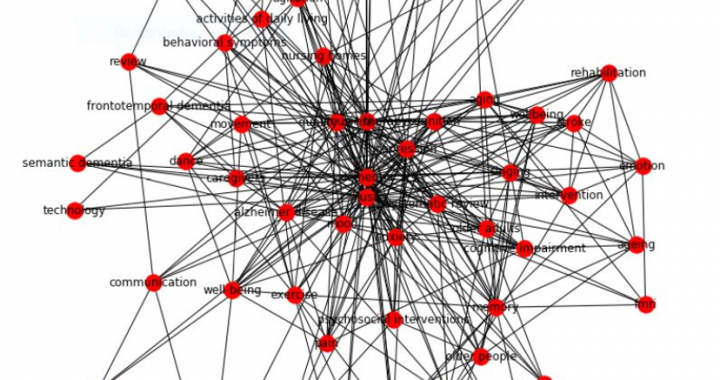Reimagining digital preservation of music for Alzheimer’s disease: can artificial intelligence be a potential mirror of musical patterns that matter?
An online lecture
by DCI 2020-21 fellow
Dr Yunhyong Kim
University of Glasgow
hosted by the Digital Curation Institute, Faculty of Information,
University of Toronto
Friday, 22 May 2020, 12 noon – 1:30pm
Online
The Digital Curation Institute is pleased to invite you to a DCI research lecture by Dr Yunhyong Kim, Lecturer at the School of Humanities, University of Glasgow, and this year’s McLuhan Research Fellow at the Institute. The talk and discussion will take place online. Access is free, but only registered participants will be admitted – please reserve a place at bit.ly/musicdp.
Abstract
A number of project and research results have proposed music as an effective conduit for non-pharmaceutical intervention for dementia (e.g. BBC Music Memories; Playlist for Life; Alzheimer Society Music Project in Canada; Music for Dementia 2020). These interventions often rely on the digital preservation of music, and on using these resources to design interventions, This, in turn, however, necessitates an intimate knowledge of the sufferer’s personal history and/or preferences, and requires direct sensory interaction with music by the carer and by the sufferer, to elicit positive reactions. This seminar explores the relationship between digital preservation of music and Alzheimer’s disease to raise the following questions:
- Do current practices in digital preservation capture information to accommodate diverse distinctions in auditory attention and cognition, language, music and social perception, that seem to be central to the context of Alzheimer’s disease?
- What kind of digital preservation research can accommodate compassionate design (Treadway 2019) for Alzheimer’s disease (i.e incorporating dimensions of personalisation, sensory engagement and strengthened social connection)?
First an overview of the current accepted understanding of Alzheimer’s disease will be presented from a cognitive neuroscience point of view (e.g. Gold & Budson 2008). This will be followed by a selected review of non-pharmaceutical interventions that have so far been explored using music. We will then briefly revisit established digital preservation practices to contextualise the above questions. The talk posits that, in order to support those suffering from Alzheimer’s disease, digital preservation needs to be reimagined to capture patterns that correlate, on the one hand, with attention, cognition, and perception, and, on the other hand, personalisation, sensory engagement, and social connections.
The talk opens up a discussion of musical patterns which are repeated throughout musical and personal histories, and presents examples to show that humans have developed an intimate relationship with these musical patterns that manifest as recognition of style and rhythm even without musical training (Raman et al. 2020; Thaut et al. 2014) and as influence on attention (Petružálek et al. 2018). Such patterns are also the bread and butter of artificial intelligence (e.g. generative neural networks; information retrieval) and the paper argues that artificial intelligence might serve as a mirror of patterns that matter to humans, allowing a gateway to a number of areas where artificial intelligence might help us to better understand how we might incorporate these patterns as part of curating music. The talk will conclude by further speculating on how we might use curated patterns in designing interventions using music for dementia for a discussion with the broader research community.
Speaker
A lecturer at the School of Humanities, University of Glasgow, Dr Yunhyong Kim works across multiple topics related to information management and analysis, gravitating towards areas that bring together artificial intelligence, digital curation, and forensics in the arts and sciences. She has diverse publications in these areas, and is currently leading research in “data forensics and exploration for film archiving and research” as part of the AHRC co-funded project “The Legacies of Stephen Dwoskin’s Personal Cinema”. She is currently supervising PhD projects, for example, addressing, the use of artificial intelligence in the archives, and the role of data analysis for understanding medieval Welsh legal texts, as well as, the broader impact of media and technology in literature and biological sciences. Yunhyong is keenly motivated by multidisciplinary collaborative work, across research, learning, design, and/or even playing music, for example, on the saxophone. She has been awarded a Ph.D in Mathematics from the University of Cambridge, and an MSc. in Speech and Language Processing from the University of Edinburgh.as part of the AHRC co-funded project “The Legacies of Stephen Dwoskin’s Personal Cinema”. She is currently supervising PhD projects, for example, addressing, the use of artificial intelligence in the archives, and the role of data analysis for understanding medieval Welsh legal texts, as well as, the broader impact of media and technology in literature and biological sciences. Yunhyong is keenly motivated by multidisci-plinary collaborative work, across research, learning, design, and/or even playing music, for example, on the saxophone. She has been awarded a Ph.D in Mathematics from the University of Cambridge, and an MSc. in Speech and Language Processing from the University of Edinburgh.
References
BBC Music Memories https://musicmemories.bbcrewind.co.uk/
Gold, C. A., & Budson, A. E. (2008). Memory loss in Alzheimer’s disease: implications for development of therapeutics. Expert review of neurotherapeutics, 8(12), 1879–1891. https://doi.org/10.1586/14737175.8.12.1879
Petružálek, J., Šefara, D., Franěk, M. and Kabeláč, M. (2018) Scene perception while listening to music: an eye-tracking study. In Proceedings of the 2018 ACM Symposium on Eye Tracking Research & Applications (ETRA ’18). ACM, New York, NY, USA, Article 35, 1–5. DOI: https://doi.org/10.1145/3204493.3204582
Playlist for Life https://www.playlistforlife.org.uk/
Raman, R., Kriegsman, M. A., Abdi, H., Tillmann, B., Dowling, W. J. (2020) Bach, Mozart, and Beethoven: Sorting piano excerpts based on perceived similarity using DiSTATIS, New Ideas in Psychology, Volume 57, ISSN 0732-118X, https://doi.org/10.1016/j.newideapsych.2019.100757.
Thaut, M. H., Trimarchi, P. D., & Parsons, L. M. (2014). Human brain basis of musical rhythm perception: common and distinct neural substrates for meter, tempo, and pattern. Brain sciences, 4(2), 428–452. https://doi.org/10.3390/brainsci4020428
Treadaway, C., Fennell, J., Taylor A. & Kenning G. (2019) ‘Designing for playfulness through compassion: design for advanced dementia,’ Design for Health, 3:1, 27-47, DOI: 10.1080/24735132.2019.1593295

